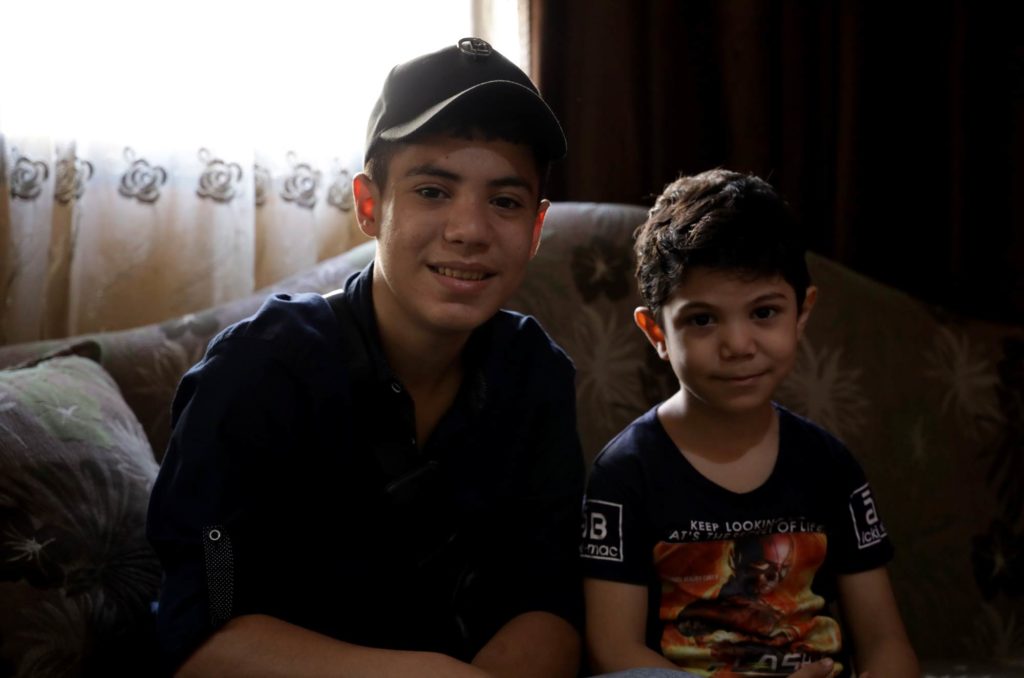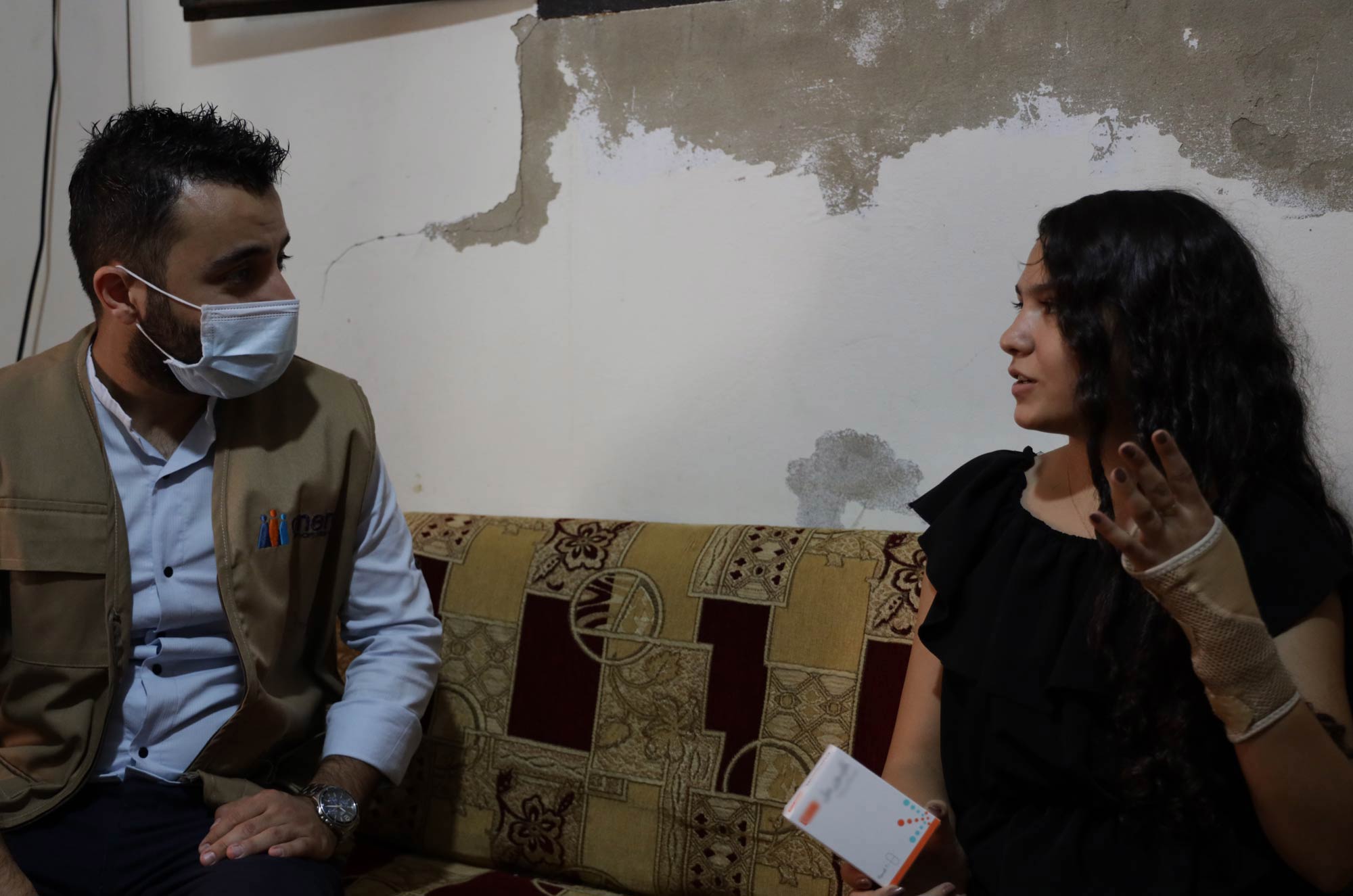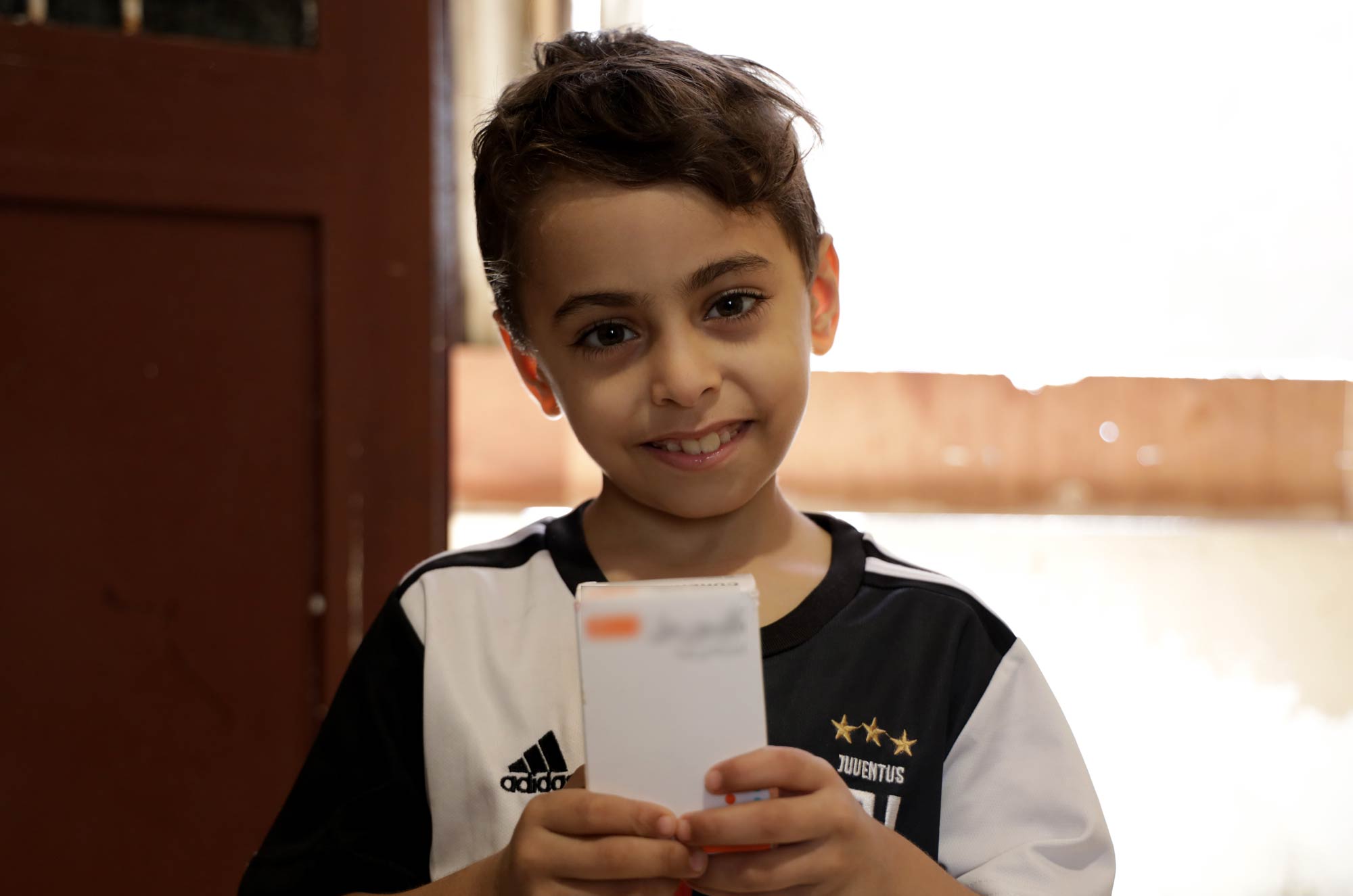HEALTH
Delivering Life-Changing Medication to Children in Lebanon
Oct, 2020
Hikma and Anera deliver sickle cell disease treatments to vulnerable patients in Lebanon
Anera’s new medical partner, the pharmaceutical company Hikma Jordan, has generously donated 6,000 treatments of the medicine hydroxyurea to Anera Lebanon. The shipment of donated medicine will allow 90 patients to get treatment, supporting refugees living with chronic diseases like sickle cell anemia, myelogenous leukemia and cervical cancer.
Medical centers in Lebanon are now under severe financial pressure due to the currency crisis and the ballooning COVID-19 caseload. Anera’s medical donation team distributes the medicines to local hospitals and health centers where they most needed.
One such facility is the American University of Beirut Medical Center, which works with a Palestinian organization called the Social Health Care Center to provide refugees and vulnerable individuals with pro bono chronic disease treatments and checkups.
Most of their patients reside in Burj El Barajneh Palestinian Refugee Camp, in the suburbs of Beirut. Even prior to Lebanon’s deepening financial collapse, Palestinian refugees struggled to access quality health care, let alone free-of-charge treatment for chronic diseases. Most Palestinian refugees within the camps depend on UNRWA and organizations like Anera to obtain health services and medicines.
Anera recently conducted home visits and met with some of the patients who are starting or continuing their hydroxyurea treatments, thanks to the donated shipment from Hikma.


“I’ve stopped going to school,” Muhammad says. “There are many reasons I can’t continue my education, but the biggest one is being a sickle cell anemia patient.”
Muhammad is a 17-year-old Palestinian refugee living in Burj El Barajneh. He emphasizes how vital the medicine is to his quality of life.


“I can’t move, sleep, think or do anything without being on my medication. I take two painkiller pills a day — otherwise I would have horrible pain.”


He had just started his hydroxyurea treatment two weeks prior to speaking with us. Muhammad has been on medications for years, but his previous treatment did not spare him from frequent stays in the hospital. Medication isn’t a cure, but he is noticing some improvements under his new treatment.


“I still don’t feel like my overall pain has decreased after starting this new treatment, but I do feel slightly more energetic, and at least this treatment has not affected my appetite.”
We hope the hydroxyurea treatment will improve Muhammad’s quality of life and enable him to resume his education.
Aida, also 17, conveys a sense of maturity far beyond her years. She has been experiencing unbearable pain since she was a little girl. She echoes Muhammad’s words on the importance of medications like hydroxyurea.


“There’s no such thing as ‘no pain’” she says. “There are just times where the pain is more bearable than others. I can’t live without constantly receiving treatment — it hurts too much.”


Yassin, a 7-year-old Palestinian refugee, is the youngest patient who we met. His mother says:


"When he was only seven months old, we realized that Yassin was in pain. We only received a diagnosis when he turned one."
Yassin’s family could not afford the medication for their son and were desperate to find a long-term solution. It was a nightmare for his parents trying to budget enough money to purchase his medication each month.
Luckily, they eventually learned about the services provided by the Social Health Care Center and the American University of Beirut’s Medical Center. Yassin had been taking another brand of hydroxyurea for almost five years now. Yassin’s mom has noticed major improvements in his health since he began taking the drug.


“He used to have episodes of severe pain before he started taking hydroxyurea. Imagine a child suffering from abdominal pain and back pain. Sometimes he would just drop to the ground in convulsions, my poor baby.”


Before starting with the new brand of hydroxyurea donated by Hikma, Yassin still had to go to the hospital every few days. It’s been almost a month since he started on his new treatment, and he hasn’t had any episodes of significant pain or seizures.




